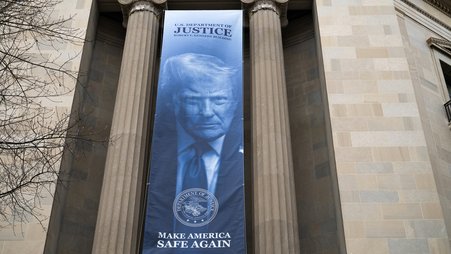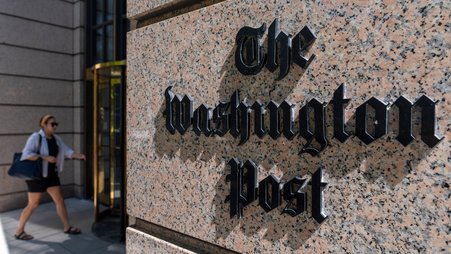
The FBI raided the homes of Project Veritas founder James O’Keefe and two of his associates earlier this month, in connection with an investigation into a diary reported to be stolen from President Biden’s daughter Ashley. Excerpts from the diary were published by another outlet — to little notice — in the run-up to last November’s election.
Based on the available information, this raid is a troubling development for press freedom. That the potential story was not a blockbuster public interest investigation, and that O’Keefe and Project Veritas have a long history of deception and manipulation, do not change that fact.
For good reason, neither the First Amendment nor the Privacy Protection Act — the little known but vital law that sets a very high bar for searches and seizures in cases that may touch on press freedom — create a special class of journalists entitled to rights beyond ordinary citizens. Instead, everyone is very broadly understood to have the legal right to engage in acts of journalism. (The PPA, in fact, doesn’t explicitly mention or define “journalists” at all: the law protects “work products” of any “person reasonably believed to have a purpose to disseminate to the public a newspaper, book, broadcast, or other similar form of public communication”.)
The benefits of this approach are that the government cannot deny the protection of law to political adversaries; or those who would publish embarrassing or challenging facts about people or institutions in power; or jail a part-time independent journalist for engaging in acts that journalists at The New York Times engage in regularly. At least in theory, the mechanisms of law enforcement cannot be legally used to intimidate targets who are not doing the “right” kind of journalism in the eyes of the government officials.
And indeed, much of the brave journalism that we celebrate, the kind that speaks truth to power and effects real change in the public interest, relies on those protections. For example, our SecureDrop system, which is used in dozens of news outlets in the United States, is hosted on-site in newsrooms, in part because newsrooms can give broad legal protections to the critical tips and important stories submitted by whistleblowers — even in cases where that material has been misappropriated by sources in some way.
The tradeoff to broad free speech rights, of course, is that people may speak in ways that are odious or deceitful, or engage in journalism which reasonably can be interpreted as unethical, even when it breaks no law. But any system designed to diminish those rights for known “bad actors” is a system that could be abused to silence speech — and can be turned on those who engage in acts of journalism that we consider noble and just.
Whether we — or anyone for that matter — consider O’Keefe and Project Veritas to be “journalists” is beside the point. If, in this particular case, they were engaged in acts of journalism — receiving information from a source and looking into whether they should publish it — the case may have serious implications for press freedom. This is why, in addition to Freedom of the Press Foundation, organizations like ACLU and the Committee to Protect Journalists have also issued statements expressing deep concern over the matter.
For the past decade, under administrations that span both parties, the Justice Department has infringed on the rights of many mainstream and independent journalists, often in secret — from engaging in invasive surveillance, to prosecuting their sources, and to this day, attempting to criminalize important aspects of the newsgathering process. Perhaps there’s reason not to trust as fact O’Keefe’s sworn statement to a court that the diary was legally obtained, given his organization’s history of deception; but we are not about to take the Justice Department’s word for it either, when they have not released any evidence at all that shows O’Keefe or his employees broke the law.
Thankfully, Reporters Committee for Freedom of the Press has filed a motion to unseal the search warrant application, citing the strong public interest in the case, and the government has been ordered to respond by Friday.
If the DOJ does have probable cause evidence that O’Keefe or Project Veritas were directly involved in the theft of the diary, then our concerns would be alleviated. But unless and until the DOJ releases such evidence, this episode will remain very worrying from a press freedom perspective.




